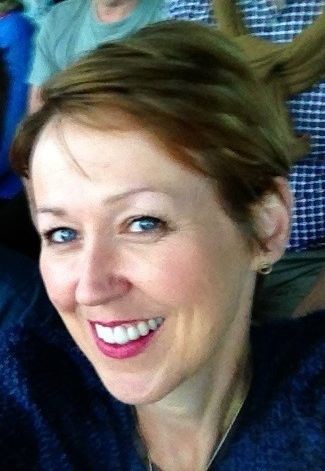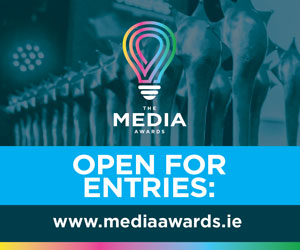
 Practically every agency has issues with the whole business of pitching with things like the cost of pitching and the transparency of the process top of many lists. So, why not change it, asks Una Herlihy?
Practically every agency has issues with the whole business of pitching with things like the cost of pitching and the transparency of the process top of many lists. So, why not change it, asks Una Herlihy?
Last week I found myself being introduced to an agency MD as a pitch consultant and I remember thinking to myself – that’s not right, that’s not really what I do – if anything, I am the anti-pitch consultant and here’s why.
For the past 20 years of my career either participating in pitches or running them, I have found the prevailing construct for agency selection to be outdated and ineffective. For 20 years I have heard agencies complain about pitching, giving out about clients and pitch consultants and yet taking no responsibility for the part they play in maintaining the status quo and accepting the conditions in which they are asked to operate. They accept bad briefs and lack of engagement with the CMO communicating their subservience and willingness to be the slave in the relationship should they be successful…if that’s how success is defined.
When I started out helping clients find the right agency, I was always conscious that I needed to help agencies find the right client too. Matching a client with an agency needs to benefit both parties and as such it has to be based on mutuality, the underlying principle of which is that everyone contributes and everyone benefits. And while pitching will always exist, there is an infinitely better way of doing it. I know from experience that agencies love this new approach and clients make better decisions because of it.
I call it the “Una Herlihy Model for Agency Selection” and there are six stages which I will outline.
Interrogate the Client
OK, ‘interrogate’ is probably a little extreme, but it’s really important to agree exactly what problems you want the agency to help you with and how you want to work with them.
What kind of relationship do you want – do you want to be challenged or do you just want your agency to march to the beat of your drum? What goals and expectations do you have for the relationship and what role will you play in helping the brand and agency team reach those goals?
There are of course a lot of other questions at this stage of the process because this is the most important stage and requires a lot of soul searching and consideration. It will ultimately determine who will be considered (long list), what will be asked of them (capabilities assessment) and how you will make your decision in the end (evaluation).
Long list
And so begins the search! We know what the client is looking for – practically, commercially, culturally – now we have to identify those agencies who meet that brief and invite them to present an ‘informed credentials’. What does this mean? Well, agencies are really good at talking about things that are of least relevance or dare I say it, interest to clients. Principally, they talk about ‘the work’ as the end point rather than the strategy that determined the work and critically, what the work achieved. So the ‘informed credentials’ is the agency’s presentation of their expertise relative to their understanding of the potential client’s operating environment. This will determine who moves through to the next stage.
Capabilities assessment and experience
At this point we probably have about four agencies that we believe have the skills, expertise and (possibly) culture fit to meet the needs of the client. The next stage is to examine the offering in much more detail by reviewing at least a couple of detailed case studies, a portfolio of the agency’s best creative work that reflects the quality of their offering in terms of stand out, originality and performance and the agency’s approach to client/project management, operations and logistics.
This is a critical stage and is the client’s opportunity to assess the quality and originality of the agency’s brain and so part of this stage should include a requirement for the agency to respond with a perspective on a specific business challenge or opportunity.
Workshop
We’re nearly there! The capabilities assessment stage has narrowed the field to two candidates. Next stage is to roll the sleeves up and to get some first-hand experience of what it would be like to work with the agency in reality. What this looks like depends on the individual client, the category they operate in and the kind of agency relationship they want to have but typically it would take the form of an “Agency Day” where the client would come to meet the team that would be working on the business, they would discuss the client’s key strategic requirements and both parties would outline the expectations each would have of the other in order to create (and sustain) a high performance client and agency team.
Evaluation, negotiation and governance
Once you have selected the preferred candidate, it’s time to get very specific about what you are buying, in what quantities and for how much. It’s ideal – but not always feasible – for the client to outline the scope of work for the year so that the agency can price accordingly as well as allocate the resource required to service the business in advance. After that, it’s always important to agree a service level agreement and how the team performance will be evaluated – 360 degrees all the way!
Review
The process of finding an agency is tremendously exciting and energizing and while the relationship usually starts off on a high with lots of great intentions it can very quickly spiral out of the control through a combination of bad behaviours and poor performance of individuals and indeed of teams or departments. Scheduling quarterly reviews/performance evaluations and maintaining open lines of communication are really important to keep one step ahead of a problem becoming a crisis.
So there it is – a straight forward, no-nonsense, efficient and effective way for a client to identify an agency partner. Fundamentally it is an approach that grounded in common sense.
For clients looking for a new agency, please consider an alternative approach. The world has moved on so much in the last 20 years and yet the travails of pitching endure.
For agencies participating in new business pitches, I would ask them to look for clients who are open to a new model. Chances are that if they open to new ways of finding agency partners, they will be open to your innovative and imaginative solutions to their business problems.
And if either of you are stuck, just give me a call!
Una Herlihy is an independent marketing consultant and facilitator and can be reached at 086 3890036.
First published in Irish Marketing Journal (IMJ Agency Issue 2016)© to order back issues please call 016611660






















